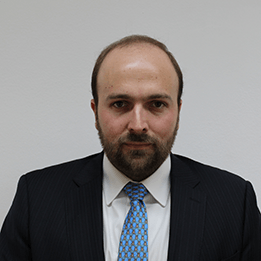

General counsel | Equitas Capital



Marco Antonio Muñoz Chamy
General counsel | Equitas Capital
Why are in-house lawyers well-placed to drive change in their organisations?
In-house lawyers are bridges and teachers. The mindset of a business executive is as follows: ready, fire, aim. Whereas the mindset of a lawyer would be something like this: ready, aim… aim… aim some more, why do not we meet again tomorrow to keep aiming. This completely different mindset is difficult to overcome by itself, more so if one is not aware of it. The challenge and goal of an in-house lawyer is twofold. First, we must act as the bridge between these different perspectives, helping executives understand the law and the limitations thereof, but doing it in a business-oriented manner. And secondly, we must also teach the executives in all the law-related aspects relevant to their jobs, providing them with the relevant knowledge that would help them make future decisions.
As we live in a fast-paced world today, what skills will a corporate legal team need to succeed in the modern in-house industry?
In three words: economics, accounting, and math. Generally speaking, lawyers and numbers do not get along. Many of my law school classmates openly declared that they studied law because they disliked numbers. The problem, or opportunity depending on the perspective, is that nowadays proper legal advice needs to understand the business aspect of the client more than ever before, and that necessarily requires understanding and dealing with numbers. This goes double for in-house lawyers. An outside counsel normally has the luxury of advising what can or cannot be done. An in-house counsel, our legal advice, ought to be the result of a cost-benefit analysis after pondering the risks involved in the decisions. That analysis cannot be done without understanding economics, accounting, and math.
What are some of the main legislative or regulatory changes that have impacted you?
We are living it at this moment. When Chile was admitted to the OECD, one of the requirements was that a statute of corporate criminal responsibility was enacted. The initial law, enacted in 2009, contained just the basic three offenses: bribery, financing terrorism, and money laundering. The following ten years saw the statute increase the number of crimes covered by corporate criminal responsibility. However, this year, a new law passed that increased the number of crimes covered by corporate criminal responsibility to more than two hundred and introduced an entirely new system of determining responsibility and penalties that is vague and open ended. This will require a complete overhaul of the risk matrix and compliance policies of almost every industry. Any company who does not will be facing serious risks and criminal liability.